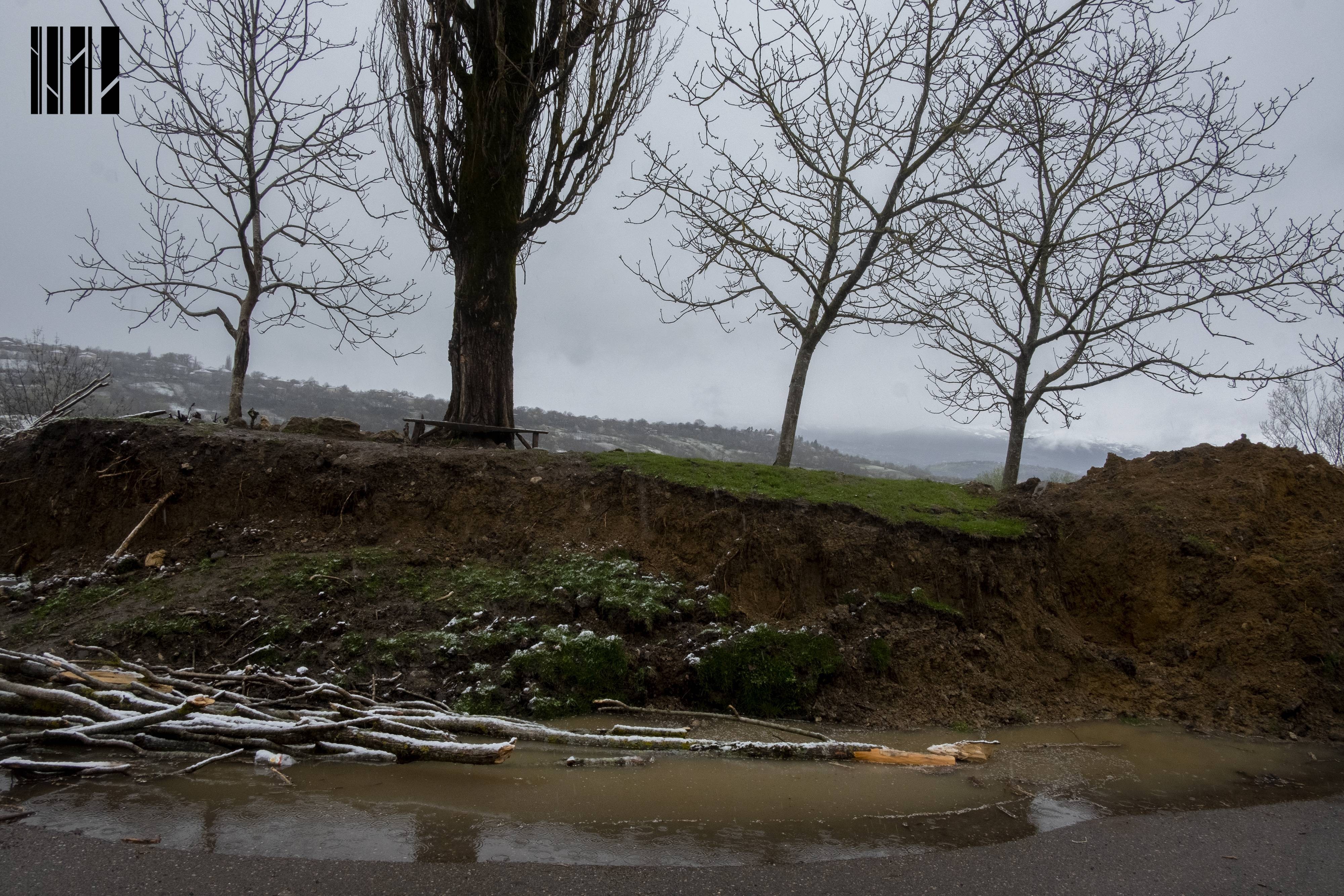საერთო ცხელი ხაზი +995 577 07 05 63


At the request of the locals and three months after the occurrence, an interdepartmental commission is investigating the March 2022 events in Itkhvisi. However, the lack of an impartial expert and a local representative in the Commission's composition breeds mistrust among the victims. Doubts are compounded by the fact that the locals do not know anything about the Commission's approach and that, before the Commission's work was concluded, officials of the local government gave insufficient and legally ambiguous compensation to the affected families. Therefore, the local populace seeks more information about the Commission's work and requests that the relevant state agencies guarantee the Commission's activities run smoothly by making the protocols, plans, and deadlines public.
The government issued a decree on June 10, 2022, establishing a 15-member interdepartmental commission for determining the causes of the geodynamic processes that developed in Itkhvisi. Along with determining the causes, the Commission was tasked with identifying the plots and residential houses in the disaster area. The Commission is comprised of representatives from the Emergency Situations Division of the Ministry of Internal Affairs, the Ministry of Health, the Ministry of Economy, Regional Development, Environment Protection, and the Ministry of Agriculture. In addition, the Commission included Chiaturi Mayor Givi Modebadze and numerous field experts. The decree stipulated that the maximum duration of the Commission's activity would be four months.
The Commission of Inquiry has been granted extensive authority; it may seek and review the blueprints for the layout of "Georgian Manganese's" mining operations, as well as other documents relating to Georgian Manganese's activities from the municipality and other state bodies. The authority of the Commission provides the opportunity to objectively determine and evaluate the role of "Georgian Manganese" in the incident, given that the responsibility of the mining company in such cases is the most contentious issue, and the lack of information hampers its determination.
However, the Commission is currently closed to the public and does not include any local community members or representatives from civil society organizations. According to a government decree, the panel had the jurisdiction to "ask other experts, professionals, and organizations to examine the condition of the disaster area and establish a plan for future development," however the Commission did not exercise this power.
In addition, some impacted families have already received an offer of compensation, even though the Commission has not yet concluded its work and the local community is unaware of its actions. Based on the evaluation completed by the Samkharauli Bureau of Expertise, local government officials offered different sums of compensation to the families. The victims assert that the promised compensation does not represent the extent of the harm and cannot guarantee them alternative housing.
Moreover, it is unclear how the disaster zone is delineated and which households are considered victims. Therefore, the interdepartmental Commission should also respond to this inquiry.
As the Commission investigating the incident's causes has not yet completed its findings, it is unclear how the disaster's affected area was established, which families were affected, and the legal basis for the compensation paid to the affected community. Clearly, the legal evaluation of the incident is contingent on its causes. It creates issues and suspicions to provide compensation without investigating the causes. Even though "Georgian Manganese" partially pays the affected population in some Chiaturi villages, the company denies its culpability and equates the compensation with corporate social responsibility. This mentality precludes the legal regulation of mining, it's effective monitoring, and the formation of a standard, equitable system for harm assessment and compensation.
In light of the preceding, the transparency of the Commission's work is of the utmost importance. For the public to have faith in the Commission's ultimate judgment and recommendations, it is essential that all material relevant to the study, including the examined documents, methodology, and on-site study results, be made public.
Signatory Organizations:
The website accessibility instruction